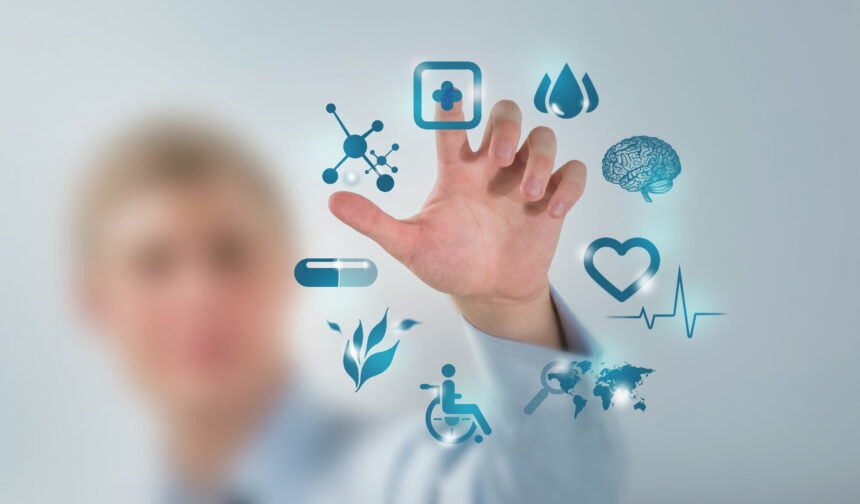Technology sometimes gets a bad press. From being used as a reason for declining mental health to shouldering the blame for children spending too long indoors, technology is often seen as something that hinders our health, instead of helping it.
Here’s a different take. While technology can impact our health when we use it in excess, modern technology has been responsible for many breakthroughs in the world of health from the COVID-19 vaccine to cures for common diseases.
Here are just some of the ways new technology is revolutionizing the world of healthcare, and how you can use it to your advantage.
1. Easier personal health monitoring
Ask somebody how many calories they burned during their last workout or how many steps they’ve done today, and they’ll probably be able to tell you. Ask the same question ten years ago? You’d likely have been met with blank stares.
Technology allows us to take our health into our own hands in more ways than one. Wearable tech – such as fitness watches – is perfect for tracking metrics that encourage us to incorporate more physical exercise into our lives.
Many of the models currently on the market can even measure blood oxygen levels or carry out an ECG. Healthcare technology was invaluable during COVID-19 when patients could monitor blood oxygen levels from home to keep an eye on their recovery.
Personal health monitoring accessories empower us to improve our own health with the support of a few gadgets. The more we take health into our own hands, the less strain this puts on health services, which benefits us all.
2. More efficient projects
Technology helps us make the world not just a better place, but a faster one, too. When it comes to healthcare, speed is of the essence, especially when developing new drugs and vaccines.
We saw this play out with the speed at which the world was able to come together to create the COVID-19 vaccine, and technology is only set to make these breakthroughs even more rapid.
Let’s look at biopharmaceutical manufacturing, for example. Companies like Goodwin are at the center of a revolution in increasing the speed of biopharmaceutical projects, which aim to create pharmaceutical drugs manufactured from biological sources.
Improved technology means improved manufacturing, so not only are pharmaceuticals becoming more effective, but the timeline of development to market is becoming quicker.
3. Virtual healthcare
In an increasingly busy world, patients have less time to spend running errands like an in-person doctor’s appointment. Not to mention the stress that many doctors are under to see as many patients as possible in one day. Enter: virtual healthcare.
Thanks to video call technology, telemedicine has become widespread, allowing doctors and nurses to see patients virtually instead of at in-person appointments. While telemedicine has its limits, it can massively increase efficiency, and allow patients to see their doctor even when they’re not in their geographical vicinity.
4. Robot-assisted surgery
Robotics has long been touted as a huge technological leap forward, and in recent years its use in the world of healthcare has become more prevalent.
One of the medical procedures requiring the most precision is surgery, and surgeons report some of the highest levels of stress and mental health issues in the industry.
That’s where robot-assisted surgery comes in. This doesn’t mean that humans are about to be removed from the process of surgery altogether; it simply means robots can assist with surgery to allow for greater precision and reduce the invasiveness of many surgical procedures. Surgeries that are less invasive can reduce post-surgery pain and recovery time while removing some of the stress from overworked surgeons.
5. Virtual reality training
Training for medical jobs is challenging, especially when future doctors and nurses are trying to apply lessons from a textbook to real-life, time-sensitive situations. If only there were a way to practice medicine in a real-life scenario without putting any lives at risk with trainee mistakes.
Well, now there is. Virtual reality’s use in medicine is constantly growing and the futuristic technology is even being used as part of training sessions.
With training that’s more realistic and less theoretical, medical professionals are entering the field with more knowledge and experience than they would have had previously.
VR can also be used to support the well-being of patients as a form of exposure therapy, soothing mental and physical symptoms.
The bottom line
The impact of technology on healthcare is often overlooked, but it benefits the industry in a whole host of significant ways. The medical landscape continues to evolve, and this evolution is becoming even more rapid, thanks to the introduction of new technologies.
From robots assisting with surgery to personal devices empowering people to look after their own health, we can expect to see an industry that looks completely different in another ten years.

